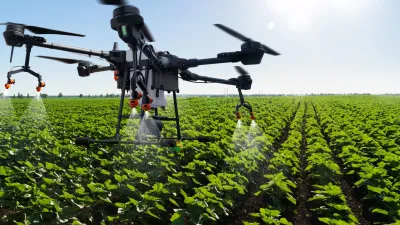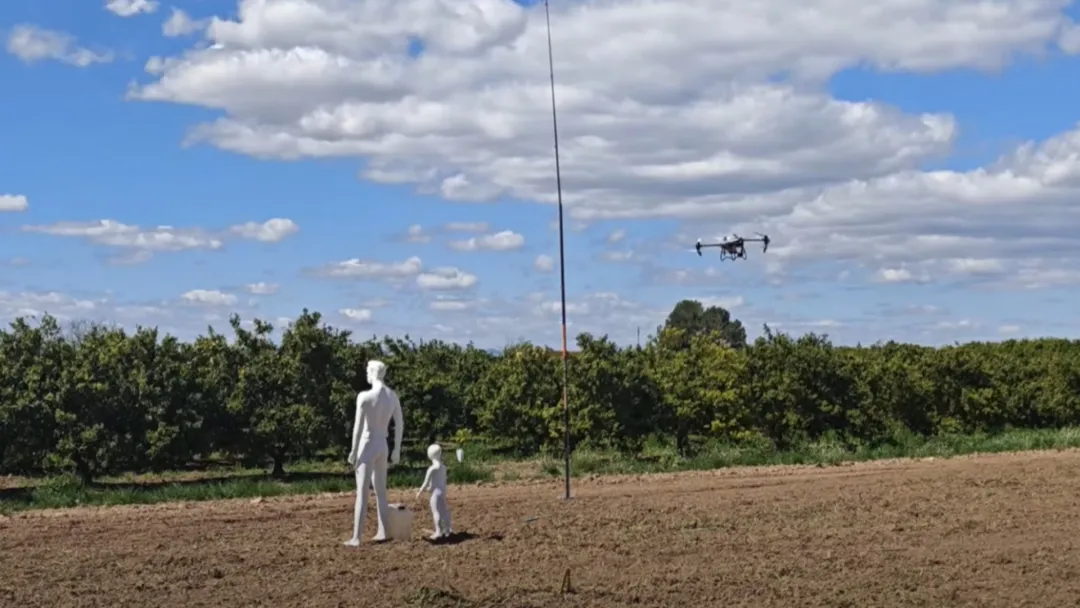General information
RDP Priority
- P2. Competitiveness
RDP Focus Area
- 2A: Farm’s performance, restructuring & modernisation
RDP Measure
- M16: Cooperation
Beneficiary type
- Operational group
Summary
The project, led by the Union of Agricultural Producers of Álava (UAGA), was funded by the 2022 Cooperation Measure under the Basque Rural Development Programme (RDP 2014–2022). At its core, the project aimed to help small and medium-sized farms in Álava tap into the potential of precision agriculture, especially drones, to make crop protection more accurate, more efficient, and ultimately more sustainable. The team calibrated drones, ran drift-assessment trials, and compared the results with conventional spraying methods in Aramaio (Álava).
Results
- Preliminary calibration and functional testing of the drone sprayer were successfully carried out, and reference methodologies were adapted to local forestry conditions.
- Observations indicated that drones could achieve equal or better product distribution, lower spray volumes, and a reduction in drift beyond the target area, confirming the practical feasibility of drones in steep, wooded terrain.
- A crucial outcome of the project was the creation of a space for learning. Through hands-on demonstrations and field training, local farmers got to see the tech in action up close.

Promoter
UAGA – Unión Agroganadera de Álava*
* The Project promoter/beneficiary is an EIP-AGRI Operational Group ©
Funding
RDP support: 60 871 (EUR)
EAFRD 48 697 (EUR)
National/Regional: 12 174 (EUR)
Ressourcen
Links
Context
Many of the small and medium-sized farms in Álava (Basque Country) still face serious barriers when it comes to adopting digital tools, even though those tools could significantly reduce input use and environmental impact. This is why the project focused specifically on drone-based solutions, assessing their operational viability in complex terrains, such as steep agroforestry landscapes, where conventional ground equipment proves inefficient.
In this context, a pilot project was launched in Álava to evaluate the use of drone technology for the application of phytosanitary products. Led by UAGA (Union of Agricultural Producers of Álava) and supported by partners such as NEIKER (Basque Institute for Agricultural Research and Development) and the specialised drone companies, Zeruan Group and Arabadrone, the initiative aimed to assess the real-world utility of combining drones, precision equipment and existing machinery to reduce pesticide use. The pilot involved early coordination with AESA (Spanish Aviation Safety and Security Agency) to meet legal requirements for drone spraying, including buffer zones and operator safety protocols. The ultimate goal was to promote sustainable input use and improve knowledge transfer to farmers.
Funded under the cooperation measure of the Basque Rural Development Programme 2014-2022, the project also addressed the practical challenges that small and medium-sized farms face in accessing digital technologies.
Objectives
The main objective of the project has been to promote the adoption of precision agriculture technologies among small and medium-sized farms in Álava.
The specific objectives were to:
- assess the feasibility of drone-based spraying in agroforestry systems;
- improve the precision and sustainability of pesticide application;
- support knowledge transfer and encourage the digital transition in the agroforestry sector;
- demonstrate potential input savings and reduced environmental impact.
Activities
Project activities included:
- drone characterising - preliminary calibration and functional testing of the drone sprayer were carried out by NEIKER, together with drone companies. Flow rate, spray pattern and effective swath were adjusted in situ to fit the topography and canopy structure of the agroforestry plots in Aramaio (Álava).
- designing of drift-assessment protocol - NEIKER adapted reference methodologies to local forestry conditions, defining a simple collector array to quantify horizontal and vertical drift during flight tests. No human-exposure or residue protocols were implemented in this pilot project.
- comparative field trials - these were carried out in order to evaluate the effectiveness of drone spraying compared to conventional ground equipment. Drift was monitored using simplified field techniques adapted to forestry conditions. All drone operations were conducted in accordance with AESA regulations, including the use of basic personal protective equipment, designated buffer zones and flight plan approvals.
- capacity building and knowledge transfer - UAGA and NEIKER organised on-site demonstrations and training sessions for local farmers and technicians.
Main results
- Preliminary calibration and functional testing of the drone sprayer enabled in-situ adjustments to flow rate, spray pattern, and effective swath to fit the specific topography of different types of terrain.
- Comparative trial observations indicated equal or better product distribution, lower spray volumes and a perceived reduction in drift beyond the target area. While no human exposure monitoring or residue analysis was performed, the pilot project confirmed that drones can operate safely and efficiently in steep, wooded terrain.
- UAGA and NEIKER organised on-site demonstrations and training sessions for local farmers and technicians. Additionally, a concise summary report of the pilot experience was distributed to project partners and regional stakeholders, fostering digital adoption among small and medium-sized farms in the Basque Country.
Key lessons
- It is worth highlighting the importance of aligning technological innovation with regulatory compliance from the outset. Early coordination with AESA ensured that drone operations adhered strictly to legal requirements for airborne spraying, including operator safety protocols, environmental buffer zones and approved flight plans.
- Rather than developing standardised EU protocols, the project focused on adapting simplified field methodologies to local forestry conditions involving local farmers and technicians. Practical demonstrations helped build trust and understanding around drone capabilities, particularly their potential to optimise input use and reduce drift in challenging landscapes.
- Although the project did not aim to influence national regulation, it contributed to strengthening local capacity and awareness, laying the groundwork for broader adoption of drone-based precision agriculture among small and medium-sized farms in the Basque Country.
The technology is already on the market. What’s missing is a legal framework that reflects its real characteristics.
The real lessons will come from the final results. But this is already helping us understand where future innovation projects can focus.
Project Office (UAGA)

